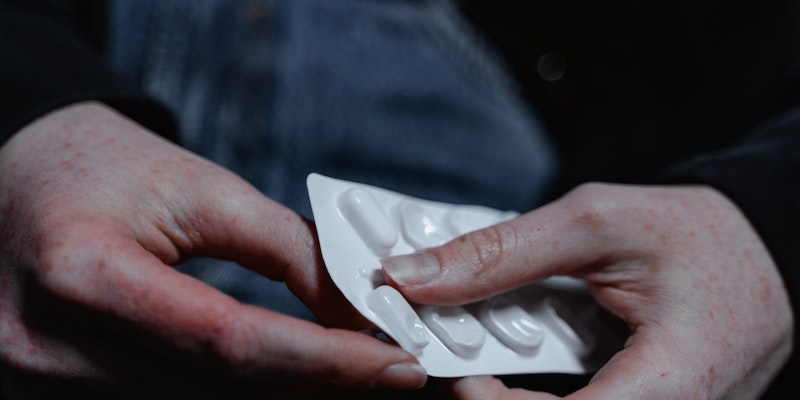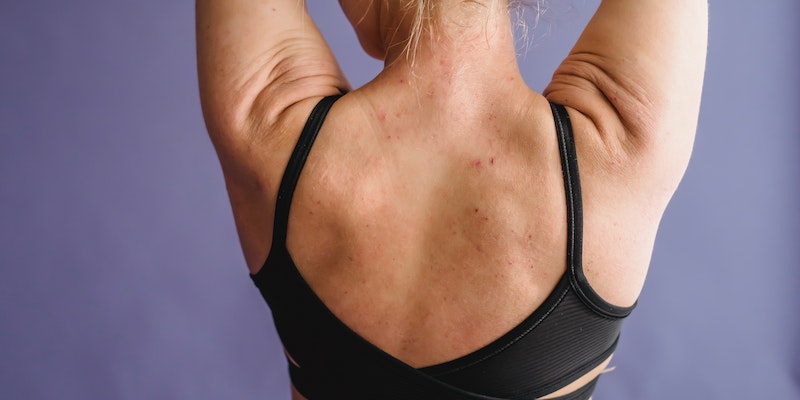Shingles: A Comprehensive Overview
Oct 01, 2023
Shingles is an infection caused by a virus that appears as a painful rash that may form blisters. The varicella-zoster virus, also responsible for chickenpox, is the causative agent in this condition. Interestingly, shingles can only develop in people who have previously been infected with chickenpox.
Typically, the shingles rash is a form of blister that is painful and irritating. These blisters appear on the body and can be anywhere on the chest, face, abdomen, back, or pelvis. It may take many weeks for them to reach their final state. Shingles can cause discomfort and tingling that might continue for months or years in one out of every ten persons with them. This type of pain is referred to as post-herpetic neuralgia.
Shingles can further cause:
- Severe pain in affected areas.
- Pain in eyes.
- Ramsay Hunt's disease.
- Germs getting into the skin and making it worse.
- White spots (loss of color) or scars in the rash area.
- Shingle rashes
Symptoms of Shingles

The rash often appears as a single band down the body's left or right side. The inflammation can affect only one side of the face. Moreover, facial shingles can spread to the eye and result in permanent blindness. The rash, like chickenpox, can develop all over the body and has a very similar appearance. This happens often only to those with compromised immune systems.
Additional shingles symptoms include:
- Headache
- Chills
- Irritated stomach
The place where a rash will appear may hurt, itch, or tingle. It may take many days for the inflammation to occur after this. In some instances, a fever will precede the rash.
Causes of Shingles
The varicella-zoster virus, often known as VZV, is the causative agent of chickenpox and shingles. This chickenpox virus can latently exist in a person's body for their whole lifetime. In later years, the virus may become active again, resulting in an epidemic of shingles. In the vast majority of cases, a person will only have shingles once in their whole lifetime. On the other hand, shingles can return if you've already had them.
Even if you have never had chickenpox or been vaccinated against it, it is still possible to catch a varicella-zoster virus (VZV) from someone with shingles. One of two ways for these persons to get the virus is via touching or breathing in fluid from blisters caused by the shingles outbreak. They will have chickenpox instead of shingles if they contract the virus. Later in life, they risk contracting shingles.
It is more common for those who have had chickenpox to spread VZV than those who have had shingles.
How Can You Diagnose Shingles?
If you consult a doctor, he will examine you and inquire about your health background, including if you have ever been diagnosed with chickenpox. The characteristic rash of shingles will allow your doctor to diagnose you quickly with whether you have this condition or not. Rarely does the rash affect both sides of the body or face equally; if that is the case, you might need further testing. The outward symptoms are red patches, tiny blisters filled with fluid or pus, or scabs.
The doctor may also scrape some skin off to analyze.
Treatment Options For Shingles Patients
Unfortunately, shingles cannot be cured. It needs to take its natural course. However, the treatments can help decrease pain and make the symptoms manageable. One of the most commonly prescribed treatments is antivirals and painkillers to ease the pain. Some signs and even nerve damage might be mitigated with antiviral medication. Other possible treatments are:
- Products that soothe the skin and reduce scratching
- Applying cold compresses to the afflicted regions of the skin
- Acyclovir, Valacyclovir, and Famciclovir are examples of antiviral medications.
- Steroids
- Antidepressants
- Anticonvulsants
Transmission of Shingles
You can transfer the virus that causes varicella-zoster to people who've never had chickenpox. Your infectious period will last until the blisters have dried and crusted over. Avoid close contact with pregnant women without chickenpox or the vaccination and those with compromised immune systems until then.
Risk Factors
The virus might reawaken if the immune system is compromised. You are more prone to get shingles in the years following a bout of chickenpox if you:
- Above the age of 50
- Weekend immune system
- HIV
- Use steroids long-term.
- No prior vaccination
Vaccine for Shingles

Protect yourself against painful shingles by getting the vaccination. All individuals reaching 65, those between the ages of 70 and 79, and anybody aged 50 and up with a severely compromised immune system are all considered to be at increased risk from shingles and should get the vaccine.
The shingles vaccine can help you fight painful rashes that are a frequent symptom of shingles. It occasionally causes severe issues, including chronic pain, impaired hearing, or even total blindness.
Who should get the shingles vaccine?
Some patients over 60 should get the vaccination for shingles. Those in their 70s and 80s and people over 50 with compromised immune systems should get the shingle vaccine.
Who should avoid the shingle vaccine?
You cannot receive the vaccination if you've had a strong allergic response (anaphylaxis) to a prior vaccine dose or a vaccine component. One of the shingles vaccinations (Zostavax) is unsuitable if you have a very impaired immune system. Thus, you'll be given a different one (named Shingrix) instead.
Side Effects
Most people who obtain the shingles vaccination only have moderate, temporary side effects. Examples of these are:
- Redness
- Itching
- Swelling at the injection site
- Trouble with one's head
- Physical discomfort
- Lack of energy
- Feeling cold (shivering)
Serious adverse effects, such as a life-threatening allergic response, are highly unusual. The individual administering your vaccine has received special training in recognizing and treating allergic reactions.
Avoiding the Spread
If you have shingles, you can lessen the likelihood that you'll infect others by taking these measures:
- Avoid meeting people who have never had chickenpox or received the chickenpox vaccination
- Avoid meeting babies born prematurely or with low birth weight
- Covering up the rash
- The avoidance of itching or touching the rash
- Frequent hand washing if you have shingles





